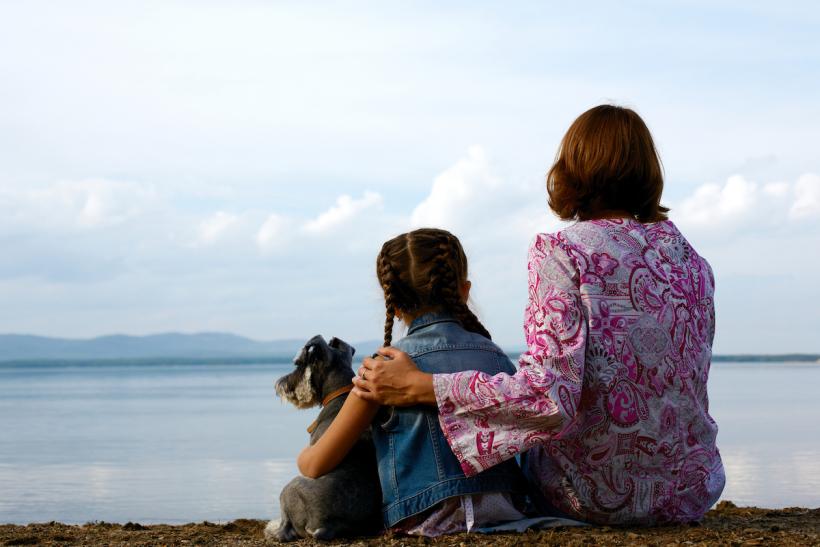
Tell your child something that they need to hear: they are safe, and you will stop at nothing to make sure that is always the case.
This article first appeared on The Good Men Project and has been republished with permission.
“What is the most important thing to bring with you into the wilderness,” asked the instructor. I had taken my fifth graders to a Wilderness Survival retreat for their end of year trip — and the instructor was a seasoned survivalist. The children chimed in with answers like “A knife”, “Some rope”, “Water”, “Matches”
He listened and nodded to all the suggestions and then smiled as he answered, “A Positive Attitude”
It was a totally disappointing answer to the children — but for me, I still think about it. He was right, of course, because no matter what you bring — if your attitude is panicked, despairing or cynical … it is going to limit your ability to use any tools or opportunities at all.
Now that I create stories for a living, I believe that children need to hear “You are Safe” more than ever.
In order to access a positive attitude and a sense of optimism, children must first truly believe they are safe. Otherwise, their attention and energy will be spent seeking protection and a sense of security. Security is not the job of the child — it is the job of the adults surrounding the child. Children don’t have the knowledge and skills to find security in the modern world — and they certainly won’t make good decisions if they are panicked or despairing. So instead of “preparing them” in the way the mother prepares her child in Terminator Two, consider helping them build up the most important tool they need: a positive attitude.
With a positive attitude, they will notice things that organically boost their security and safety. With a positive attitude, they will build relationships and be better positioned to receive support and opportunities. With a positive attitude, they will think more clearly, be more calm and be better able to access their intuition and imagination — two skills that are extremely valuable in this complex problem-solving age.
So how do we support their attitude?
Be conscious of the stories you are telling them. Be conscious of what news they hear.
Do they know about the latest shooting or bombing or kidnapping? If they do, how are you reassuring them? Consider letting them know that they are safe and that every adult they know is dedicated to making sure they remain safe. That way they can take that particular worry off the table and continue to see the world as a good and supportive place.
You Might Also Like: Because “I’m A Human”: Non-Binary Parenting
If you feel the need to “explain” the news and give them data on how unlikely it is that they should experience anything dangerous … consider taking another approach. Children are not good at understanding odds. Even if there is a tiny chance of something bad happening to them or someone they love, they will turn that tiny chance into a very likely chance. Instead, I recommend changing the language entirely and keep it simple. “You are safe and the world is good” is a nice go-to message for young children. If they persist in needing more information, instead of listing off “facts” – try telling them a story. Storytelling is the language of children and if you can tell them a story about how a vulnerable and frightened young person was reassured and supported by a group of elders, you’ll be amazed at how their fear and concern can suddenly vanish.
Here are some ideas on stories to tell:
Create a story about their favorite animal and how the community of those animals surrounds the young one and tells him or her that yes, sudden and frightening things happen in the world … but we are all here to make sure they don’t happen to you.
Or tell a story about how a frightened older sibling suddenly felt better when he or she reassured and helped a younger sibling.
Or try a story about a time when you were a child and were frightened and how an adult in your life took care of you and made you feel like everything was going to be OK.
Stories are powerful when it comes to meeting feelings of fear and a lack of safety — much more powerful than explanations and lectures. So next time you read the latest terrible event in the news, consider using it as an opportunity to tell your child something that they need to hear: they are safe, and you will stop at nothing to make sure that is always the case.








